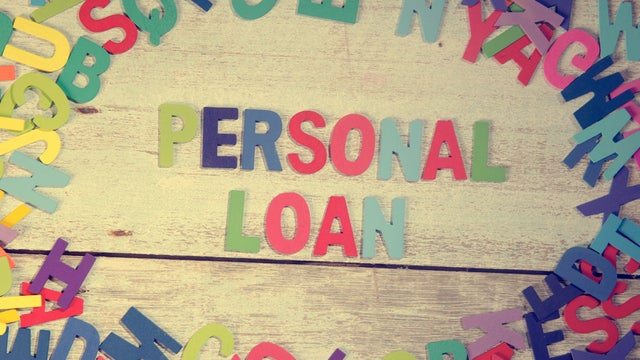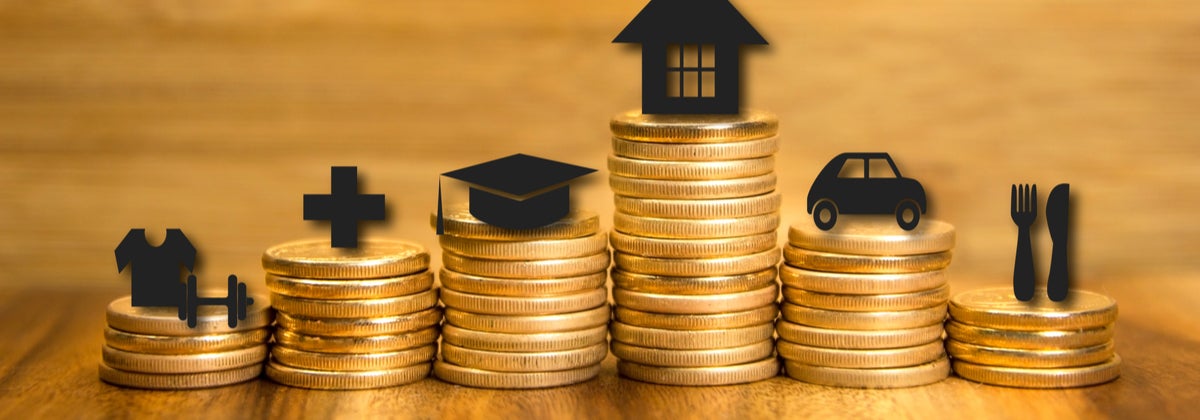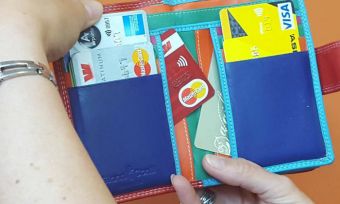What are personal loans?
A personal loan allows you to borrow a specific amount of money, usually from a financial institution, and then repay the debt with interest in equal payments over an agreed time period.
When people need to borrow money, often they want the cash fast. That’s the advantage of a credit card or overdraft. But, getting a personal loan through a financial institution is often a better option from a financial point of view because, generally, it costs less in the long run. That’s because, usually, the interest rate is lower and there are fewer fees. Don’t forget that a loan costs more than just the repayments, though – as there can be fees and other charges.
Various personal loans also let you make extra repayments. Every dollar you pay above the required repayment will shorten the life of the loan and the overall cost. Generally to get a personal loan you need to be 18 or older, have a regular income and have some accessible details of your current financial situation.
An A-Z guide:
Annual percentage rate (APR): An APR is an expression of the cost of borrowing money. It’s the total charge for the loan including fees and interest, expressed as a percentage, which allows you to compare across the market.
Application fee: A fee some lenders will charge for processing your loan application.
Asset: An asset is a resource controlled and owned by an individual or entity. In order to be an asset, the resource must be expected to offer some future economic value for the individual or entity who owns and controls it. For example, a house or vehicle than can be sold.
Bankruptcy: When someone’s debt problems get so serious that they’re unable to pay their existing debts and bills. It’s possible to apply to a court to be made bankrupt, which means any assets you have, like savings, will be used to pay off your debts. Normally, a person will be discharged from bankruptcy after one year, but it will still have a negative impact on their credit rating and may stop them getting credit or a loan in the future.
Basis point: A finance unit of measurement for interest rates and other percentages in finance. A basis point is equal to 0.01% interest. For example, 50 basis points is an interest rate of 0.5%.
Comparison rate: Includes the interest rate, payments, and most ongoing and upfront fees and charges, in one single interest rate that reflects the total annual cost of the loan.
Credit score: An assessment of the credit-worthiness of people and corporations, based on their borrowing and repayment history.
Credit report: A report from an authorised agency that shows the potential borrower’s credit history. Lenders access the information in your file to help them decide whether to lend to you. They can also record a default on your file if you make loan repayments late, or don’t pay a bill on time, such as a phone or utility bill.
Current rate: The interest rate advertised by institutions, not including fees, discounts and special offers.
Debt consolidation (consolidation loan): Debt consolidation means taking out one loan to combine and repay multiple loans or credit card debts you may have. It’s often done to secure a lower interest rate or a fixed interest rate, or for the convenience of repaying only one loan at a time.
Default: When a consumer fails to fulfil obligations to make the necessary repayments on a loan.
Down-payment: The initial payment of the personal loan, usually a small proportion of the total price. The same thing as a principal payment.
Drawdown rate: The date on which the borrower first uses the loaned money.
Equity: The residual claim to ownership that the purchaser holds over what they have bought with a loan. For example, when someone has purchased a car with a loan for $20,000 and has made repayments of $4,000, then the owner has equity in the car of $16,000.
Extra repayments: Some loans allow you to make extra payments above your scheduled monthly repayments. You could pay less in interest over the life of your loan if you make extra repayments; however, an early repayment fee may apply.
Fixed interest rate: A fixed rate personal loan means that the interest rate is fixed for the life of the loan.
Floating interest rate: A floating rate means that the interest rate on your personal loan may change at any point in time.
Guarantor personal loan: One option for taking out a personal loan is to ask a family member or a trusted person if they are willing to act as your personal loan guarantor to help you secure the loan. A guarantor is liable to pay the debt if the borrower defaults.
Interest in advance: When interest payments are charged at the beginning of a period, rather than the end. Usually only available with fixed interest loans.
Interest in arrears: When interest payments are charged at the end of a period.
Maximum loan amount: The maximum amount that can be borrowed under the loan agreement.
Minimum loan amount: The minimum amount that the lender requires the borrower to borrow under the loan agreement.
Payday loan: A payday loan is a small, short-term unsecured loan. The repayments usually coincide with the borrower’s payday, hence the name. Payday loans are characterised by high rates of interest and, generally, a small dollar value.
Redraw: A loan feature that enables the borrower to withdraw extra repayments they’ve already paid towards the loan. Usually, a redraw is only allowed if a borrower is ahead with their loan payments, and they are not available on all loans.
Secured loans: Secured loans use an asset, such as a car, to secure a loan. The asset is then used as a kind of security against the debt. The money borrowed can generally be used for any legal purposes – like debt consolidation, home renovations, school fees, paying for a holiday or buying a car – but always check with the lender first. If you’re unable to repay the loan, the lender may be able to sell your security item.
Unsecured personal loans: The lender requires no security for the debt. The loan is still subject to your ability to repay it, and if you can’t, the lender may take you to court. The interest rates on unsecured loans are higher, on average, than on secured personal loans. That reflects the higher risk of losing money for the lender.
Variable rate: A variable interest rate can go up or down over time, varying your interest repayment costs.
Read the fine print
There’s often more than meets the eye with personal loan deals, so ensure you do your research. Read the fine print and look out for what fees might apply. You may have to pay an establishment fee. Loans from Harmoney, for example, have a $200 fee added to the loan total for personal loans under $5000, and $450 for loans $5000 and over, while TSB charges a $150 establishment fee.
Work out a solid budget and calculate if you can afford to add monthly loan repayments to that budget. Unexpected things happen to the best of us, but don’t let yourself fall into debt because your budget was stretched too tight.







Share this article